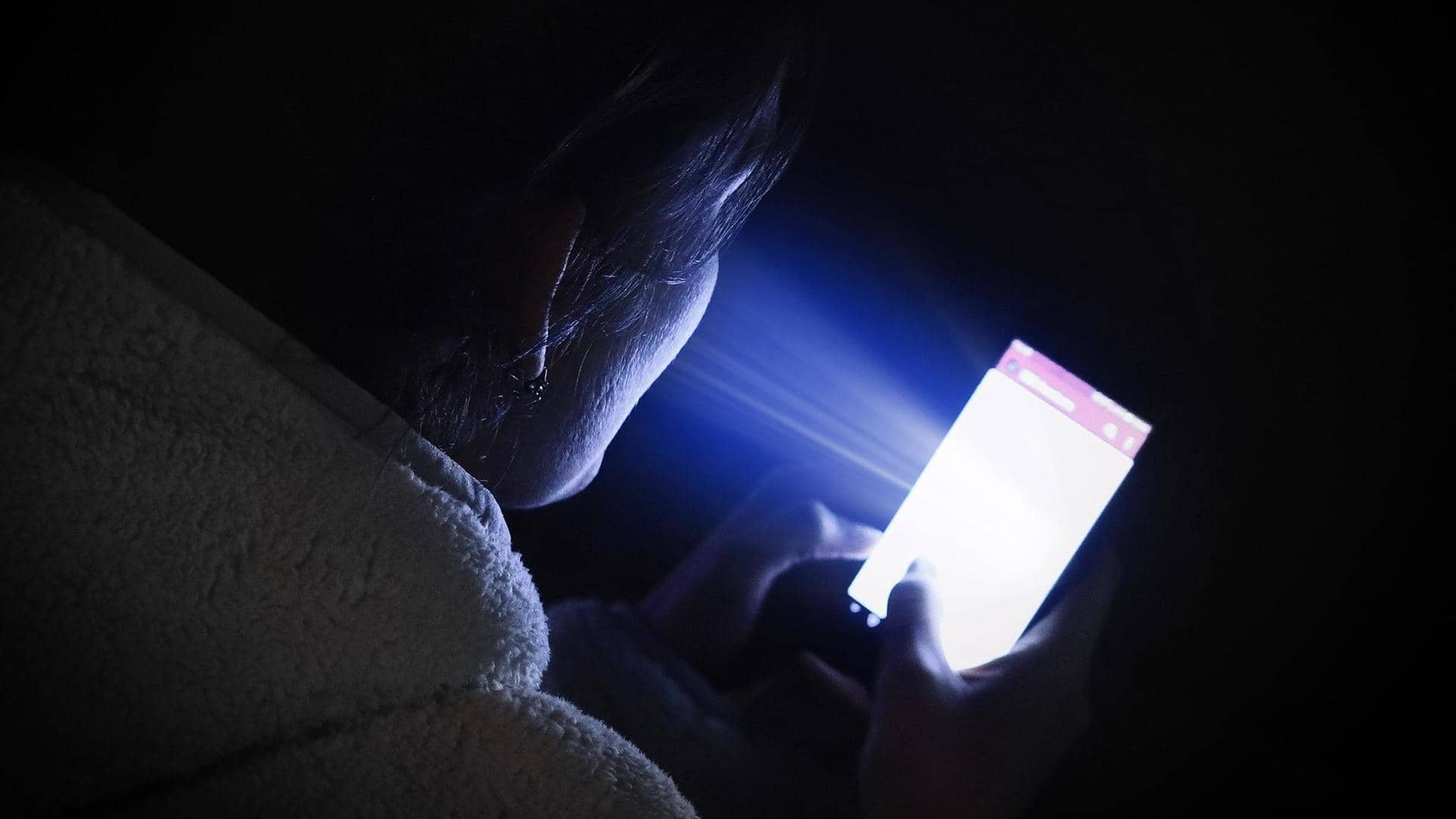
4 ways blue light exposure from screens affect your health
What's the story
How often do you scroll and swipe on your smartphone, watch TV, work on your laptop, or use other digital devices? Do you use them even at night? Well, you might need to reconsider using your digital devices at night because the blue light they emit may be harmful to your overall health. Here are some ways in which it can affect your health.
Blue Light
What is blue light?
Blue light is one of the several colors in the visible light spectrum. Each color in the spectrum has a different wavelength and energy level. Blue light relatively has shorter wavelengths and higher energy than other colors. While blue light is necessary for regulating our circadian rhythm, excessive exposure to it has been linked to disrupted sleep patterns and other health issues.
Sleep
Disrupts sleep
Excessive exposure to blue light from the digital screen can suppress the production of melatonin, a hormone that helps regulate sleep-wake cycles. When we are exposed to blue light even in the evening, it can deceive our brains into believing it is still daytime, causing our body to produce less melatonin and making it harder for us to fall asleep.
Wellbeing
Might lead to depression
As mentioned earlier, exposure to blue light at night can suppress the production of melatonin, making it more difficult for you to fall asleep and stay asleep. Some studies have suggested, this might result in symptoms of depression and other mental health issues. This is due to the fact that your circadian rhythm influences various brain and behavioral functions, including neurotransmission and hormone production.
Eyes
Causes eyestrain
Prolonged exposure to blue light from screens can cause eyestrain. This is because blue light scatters more easily than other colors, making it harder for our eyes to focus and causing our eyes to work harder than usual. If you are experiencing eyestrain, it is recommended you follow these tips to soothe your eyes and reduce strain.
Retina
Increases risk for macular degeneration
If you are exposed to blue light for longer periods, it can promote age-related vision problems, such as macular degeneration. This happens because the blue light deteriorates the center of your retina, which is essential for focusing. Blue light, according to research, has the ability to create oxidative stress on the retina of the eye over time.